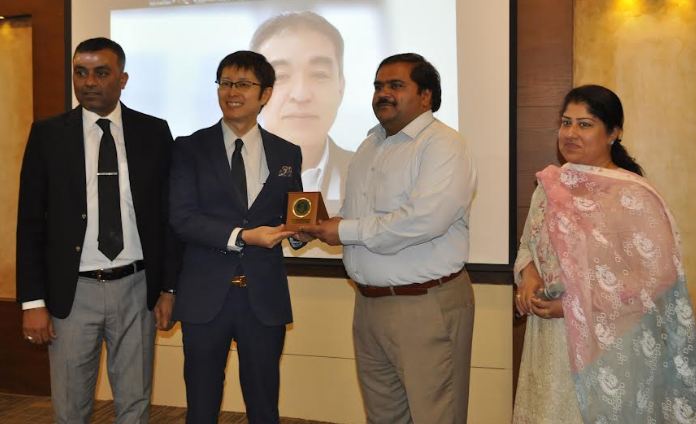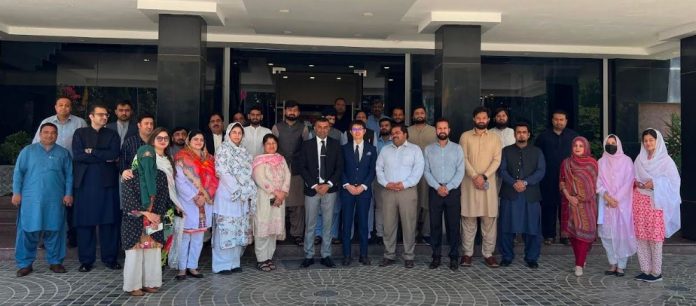ISLAMABAD, JUN 2 /DNA/ – Pakistan- Field Epidemiology Training Program (FETP), National Institutes of Health (NIH) Islamabad in collaboration with Japan-FETP, organized a special online session on the “Role of FETPs in Disease Surveillance and Prevention / Control of Diseases”.
This session was originally initiated with the good communication and collaboration between Pakistan Center for Disease Control (CDC) of NIH and Embassy of Japan in Islamabad during the challenging time of COVID-19.

The main aim of the session was to highlight the crucial role of Field Epidemiology Training Programs (FETPs) in disease surveillance, prevention, and control. As FETPs are designed to train public health professionals in the field of epidemiology and enabling them to support the development and enhancement of surveillance systems for timely detection and reporting of diseases.
Mr. Hitoshi Kikawada, a member of the House of Representatives of Japan and Chairman of the Foreign Affairs Committee, former State Minister of Cabinet office in charge of Policies agains COVID-19, was the chief guest of the session.Fellows from the FETPs, health experts, partners also attended.
In his video message, Mr. Kikawada, stated that we have faced pandemic of COVID-19 for more than three years and have understood that infectious diseases have changed our economies and societies dramatically and overcoming infectious diseases has become one of the most important issue of the human beings. He also said that Japan has dealt with COVID-19 successfully. Japan has contributed in the universal healthcare with ODA for a long time and through these experiences, Japan can play more active role in medical areas in Asia. In this sense it is wonderful that Japan and Pakistan have been working in these medical areas, he mentioned.
During the session, representative from CDC Pakistan and Dr.Tomimasa Sunagawa, MD Director, Center of Field Epidemic Intelligence,Research and Professional Development,National Institute of Infectious Diseases in Japan gave lectures,focusingon disease outbreak investigation and the strengthening of the surveillance system for the timely detection and reporting of infections. Theyalso emphasised the significance of tracking disease trends and implementing prompt interventions and preventative measures.Talking about the Field Epidemiology Training Programs (FETPs), theyadded that these programs promote collaboration among various stakeholders, including public health agencies, academic institutions, and international organizations. By training epidemiologists and supporting surveillance activities, FETPs help build resilient health systems capable of responding to disease outbreaks and other public health emergencies.

















